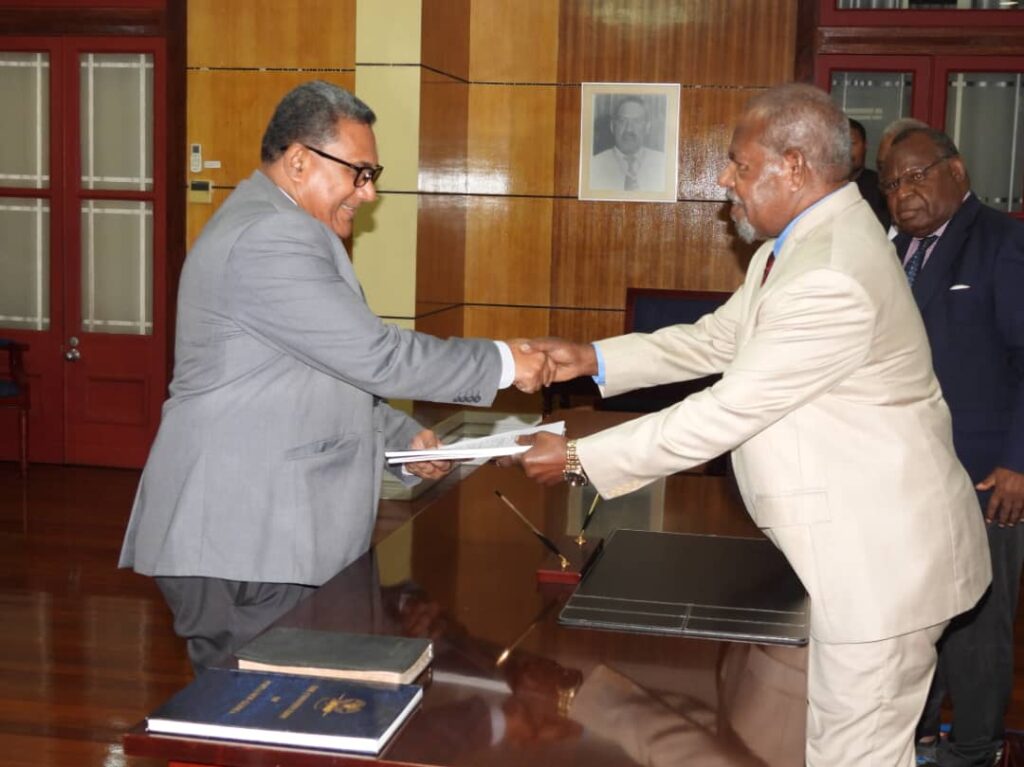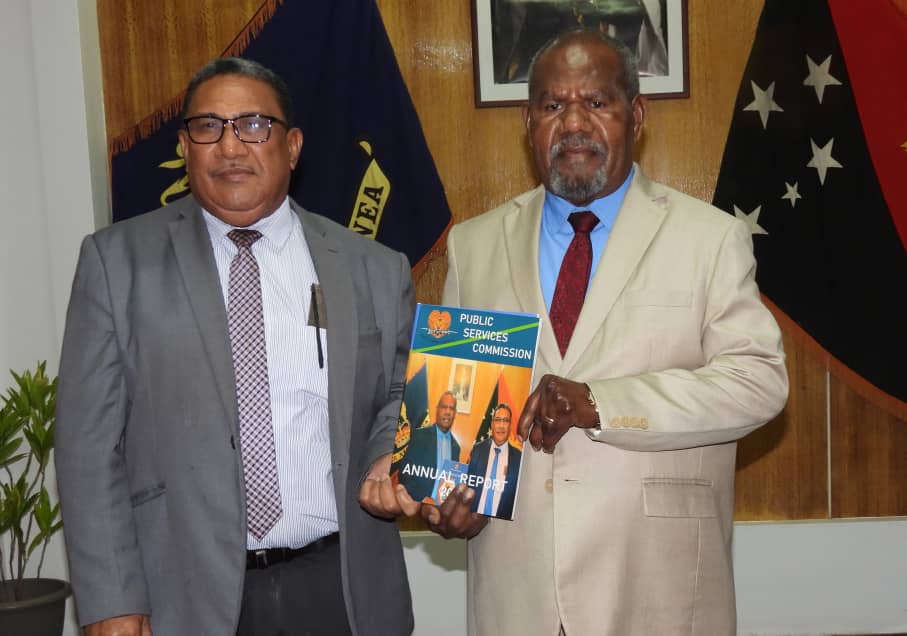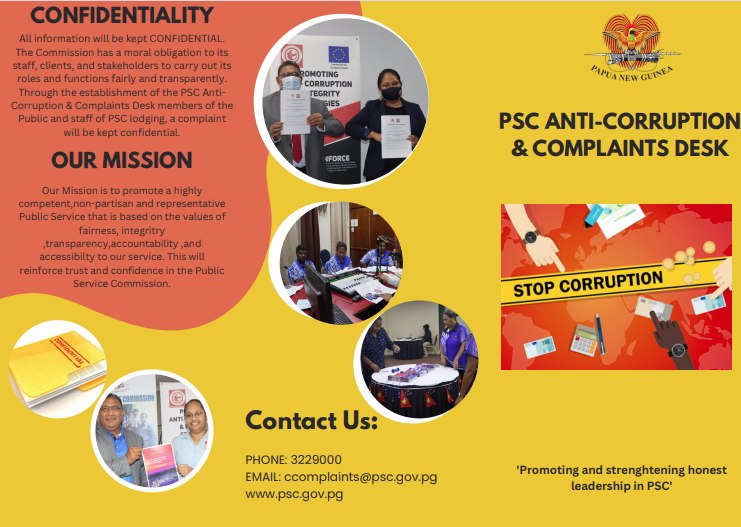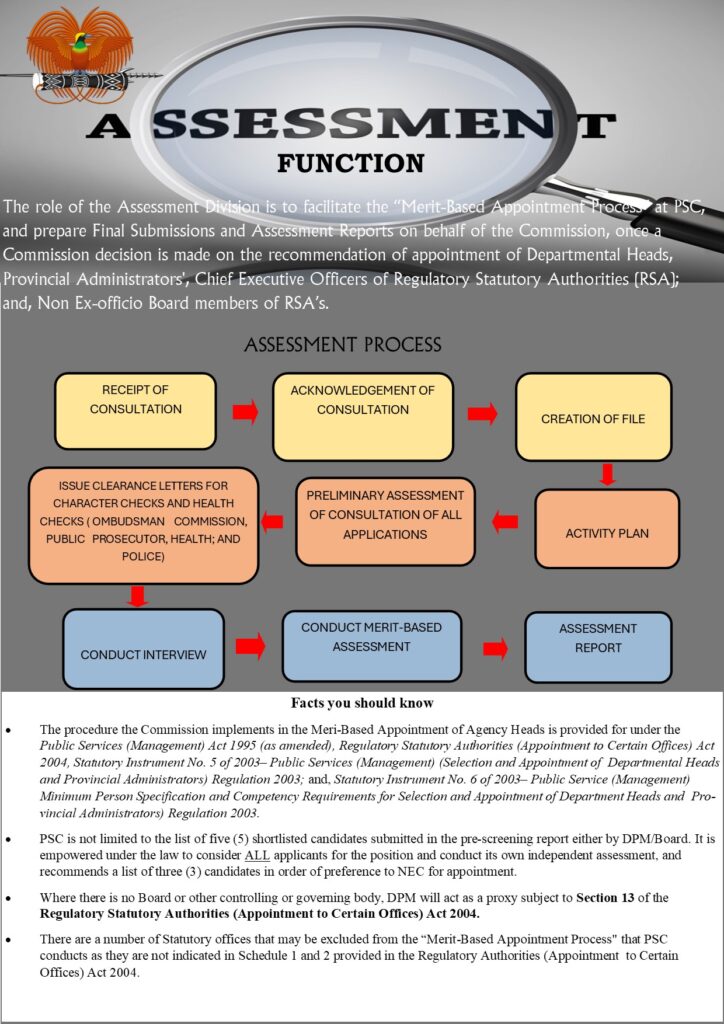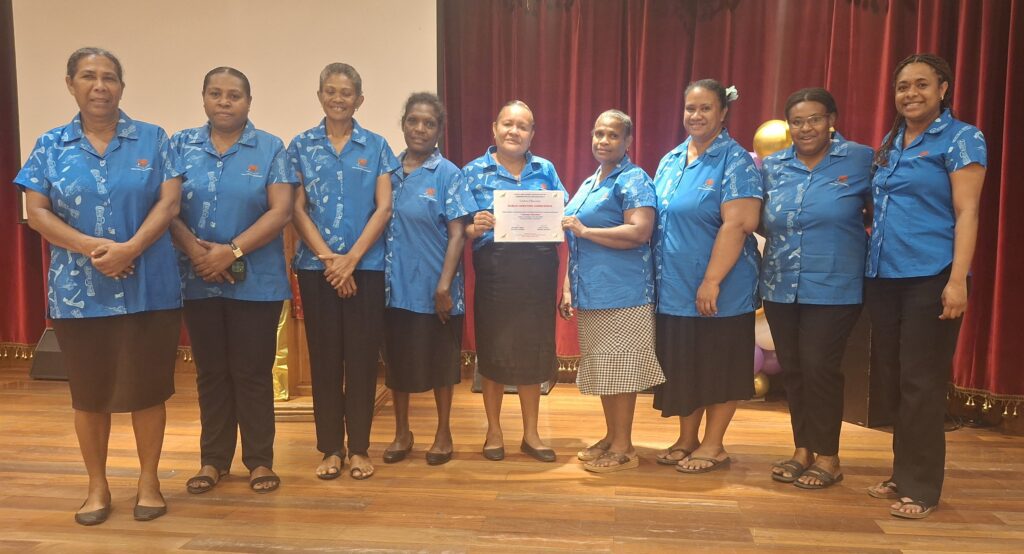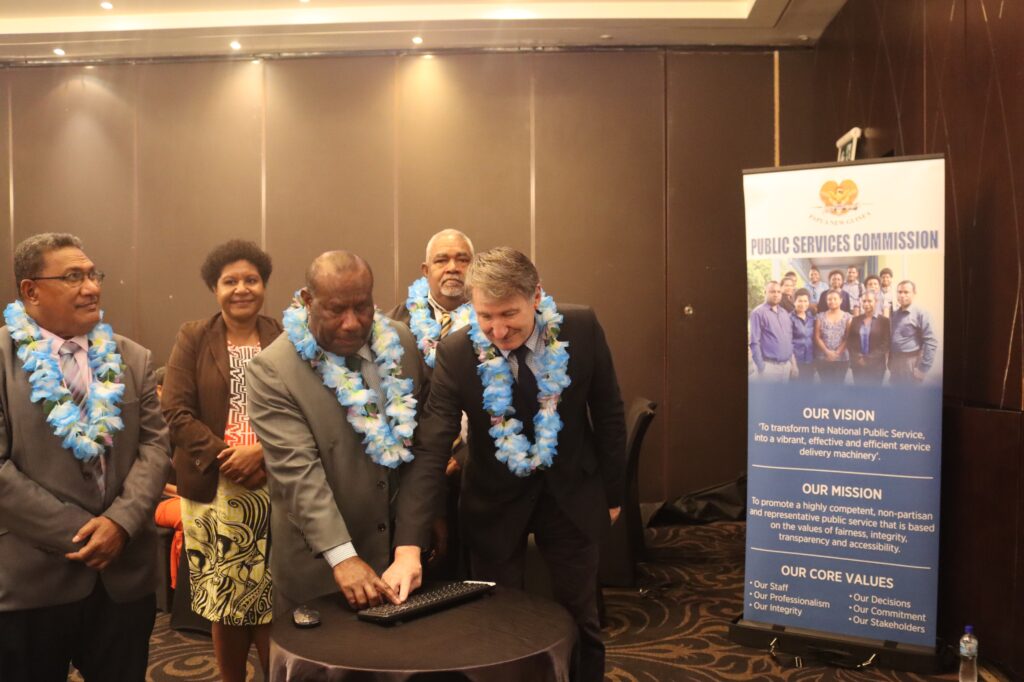Public Services Commission Presents 2022 and 2023 Annual Report to the Governor General
The Public Services Commission (PSC) today formally presented its Annual Reports for the years 2022 and 2023 to the Governor General, Grand Chief Sir Bob Bofeng Dadae, during a ceremony held at Government House.
Chairman of the Public Services Commission, Mr. Apeo Fuata Sione, L.M, M. PP, presented the reports, reaffirming the Commission’s commitment to transparency, accountability, and good governance in the public sector.
The 2022 and 2023 reports provide a detailed overview of the Commission’s operations, its key achievements, and the challenges faced over the past two years. Mr. Sione said that these reports are not only a statutory obligation, but a critical tool for public accountability.
The reports also detailed the PSC’s ongoing digital transformation initiatives, aimed at improving operational efficiency in the roles and functions it performs in the public service.
In line with statutory requirements under Section 191 (4) of the National Constitution and Section 17(1) of the Public Services (Management) Act 2020, the reports will be presented to Parliament through the Office of the Governor General. They will also be made accessible, via the Commission’s website and office to encourage broader public engagement.
